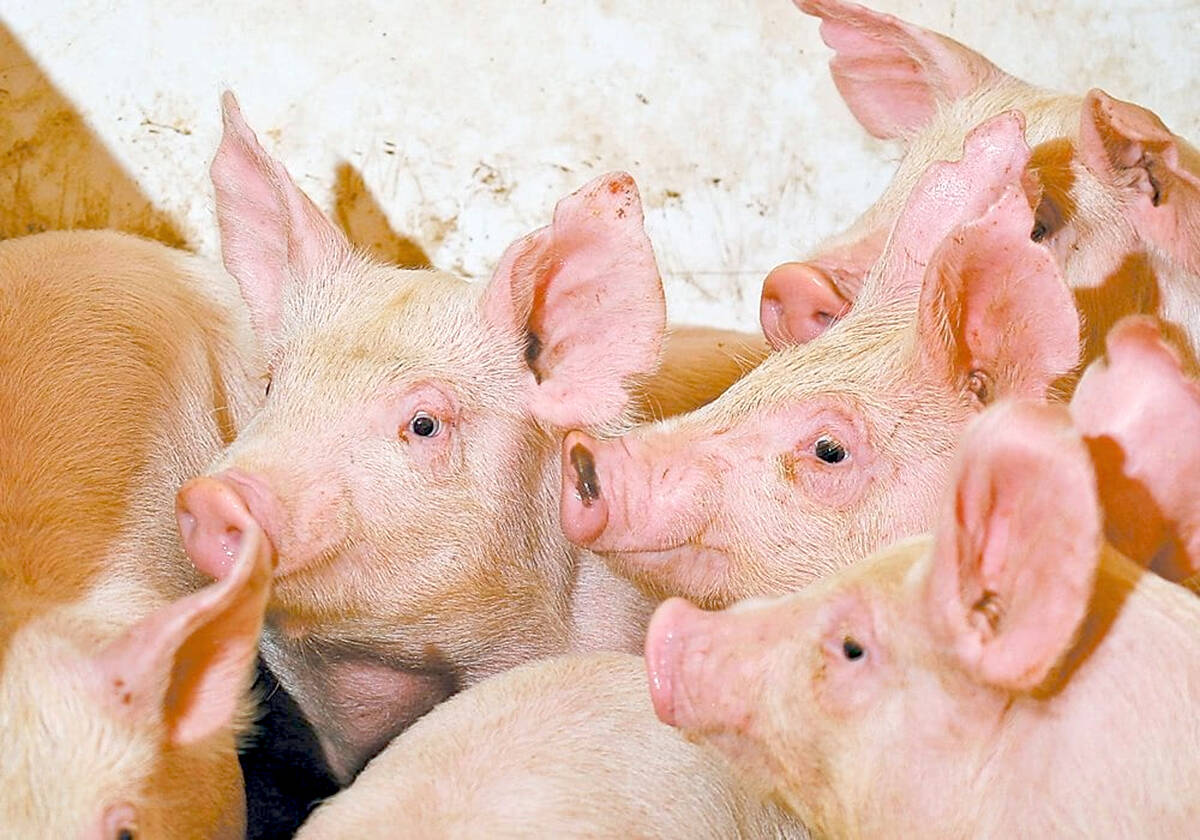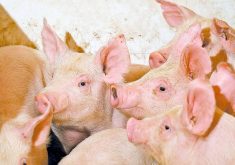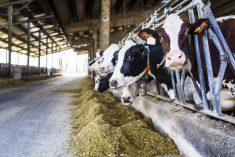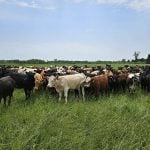With one major exception, Canada’s federal and provincial agriculture ministers have committed to have a mandatory, nationwide traceability system for livestock and poultry in place by 2011.
Coming out of their meeting this week at Niagara-on-the-Lake, Ont., the ministers on Friday jointly described such a system as “critical for managing animal health and food safety issues, as well as expanding market access and driving efficiencies.”
But the section of their joint statement dealing with their commitments to national livestock traceability included an asterisk and a footnote: “With the exception of Saskatchewan.”
Read Also

U.S. livestock: Cattle prices down, hogs rise again
Live and cattle futures on the Chicago Mercantile Exchange retreated for a second session, while lean hogs extended their rally….
Saskatchewan’s Agriculture Minister Bob Bjornerud had not made any formal comment on the matter by Friday night.
Bjornerud had previously locked horns with federal Ag Minister Gerry Ritz in February over the province’s planned $71 million cattle and hog support program. Bjornerud had publicly urged the federal government to top up the province’s pledge of per-head payments with a 60:40 funding arrangement. Ritz declined, citing the likelihood of trade retaliation.
Nevertheless, the remaining ag ministers on Friday committed to engage key industry groups on the timing of implementation on traceability for each species. The Growing Forward policy framework and federal Agricultural Flexibility Fund would be expected to provide support for “key elements” of a national system, the ministers said.
“Alberta is currently implementing a comprehensive livestock traceability system,” Alberta Agriculture Minister George Groeneveld said in a separate release Friday. “I thank my colleagues across Canada for their support and Minister Ritz for his leadership in taking this important step forward.”
Traceability, the province said, refers to processes allowing the tracing an animal or animal product all the way through the supply chain, from birth to slaughter. It consists of three pillars: animal identification, premises identification and animal movement tracking.
“Incentive-based”
“An effective national mandatory traceability system is essential to realize gains in offshore markets,” said Joe Makowecki, chairman of the Alberta Livestock and Meat Agency, in the province’s release. “We are pleased to see federal and provincial governments taking bold initiatives to build on what Alberta has already begun.”
Quebec has also begun work on a provincial traceability system. The province’s new ag minister, Claude Bechard, said in a separate release Friday that he has Ritz’s assurance a national system, when implemented in Quebec, would operate on the base of Quebec’s own traceability initiatives.
Coming out of roundtable talks with the ministers at Niagara-on-the-Lake, the Canadian Federation of Agriculture said in a release Friday that it discussed encouraging the “use of an incentive-based, rather than inflexible regulatory system” for nationwide traceability.
The National Cattle Feeders Association also cheered the ministers’ pledges on mandatory traceability. “We are very encouraged by this announcement as it will move our industry forward and better prepare us to access and develop international markets for Canadian beef,” NCFA vice-chairman Bill Jameson of Moose Jaw, Sask. said in a separate release.
Following the ministers’ meeting, the federal government on Friday announced a separate $20 million commitment to support traceability upgrades at livestock auction marts, privately-owned community pastures and other places where cattle from different herds commingle.
“Reviewed”
Coming out of a week that included the release of the Canadian Pork Council’s proposed hog industry transition funding plan, as well as a major hog farmers’ rally Friday in Calgary, the ministers said they “reviewed” the national pork council’s proposal.
“Ministers are working with the industry to address the current challenges and move towards a sustainable and profitable (hog) industry,” the ministers said.
The CFA also urged the ministers to support the pork council’s strategy so as to find ways to “maintain the viability of the hog industry.”
The ag ministers also agreed to take a “national, science-based approach” on food safety issues, and said they have directed officials to advance work in three key areas: “enhanced surveillance, pathogen reduction in meat and poultry, and common meat hygiene standards.”
These actions, they said, “will build on progress made by federal, provincial and territorial governments in upgrading and improving their systems.”
The ministers said they also discussed the issue of livestock insurance and directed officials to bring forward possible approaches, “within existing fiscal capacity,” to move forward on this for discussion at their next meeting.
The ag ministers noted their next annual meeting is scheduled for July 2010 in Saskatoon.














